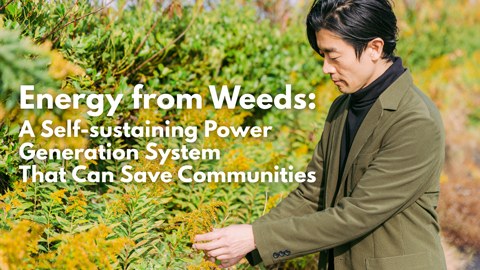The United Nations Crime Congress, the largest UN conference in the field of crime prevention and criminal justice, held in March in Kyoto, will build momentum for the world to focus on the importance of public-private partnerships in achieving the SDGs.

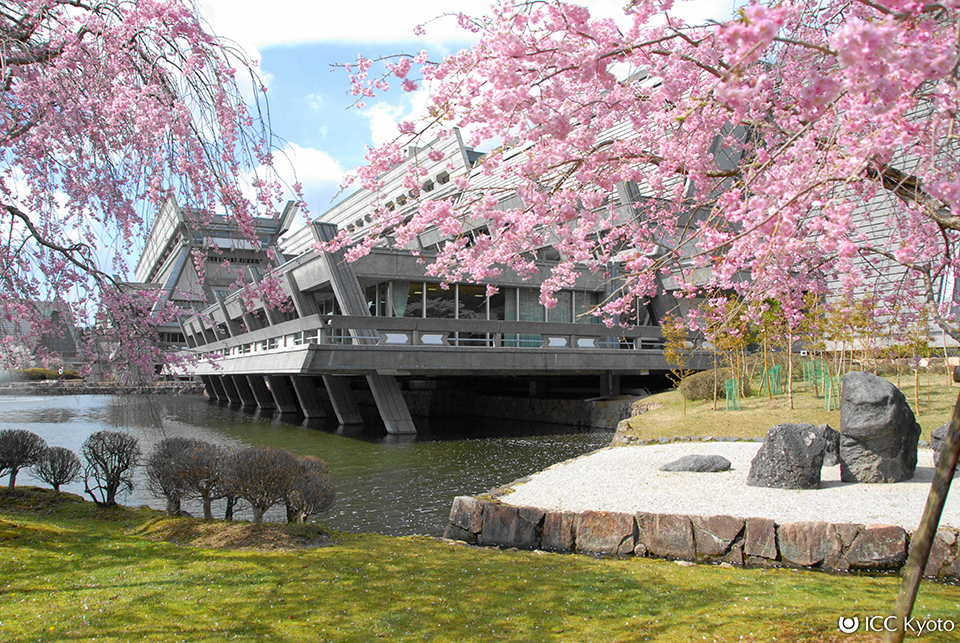
This will be the second time that the congress is held in Japan, the last time having been in 1970 with the 4th Congress, convened likewise at the Kyoto International Conference Center. The latest meeting will be notable for offering a hybrid format, with some participants attending physically at the venue, and others taking part online. ©Kyoto International Conference Center
The 14th United Nations Congress on Crime Prevention and Criminal Justice (the Kyoto Congress) will be held in Kyoto, Japan, from March 7 to 12 this year. The congress, which is the largest conference in the field, has been held every five years under the auspices of the United Nations Office on Drugs and Crime (UNODC). The Kyoto Congress—the first congress held since the UN Sustainable Development Summit of 2015, at which the 2030 Agenda for Sustainable Development was adopted—will discuss initiatives and efforts in the field of crime prevention and criminal justice towards achieving the Sustainable Development Goals (SDGs).
Among the 17 goals, discussions at the congress are expected to refer not only to Goal 16, for “peace, justice, and strong institutions,” but also Goal 17, concerning “partnerships for the goals,” which is essential to achieving the previous goal. In preventing criminals from becoming recidivists (i.e., repeat offenders), which is one of the topics Japan will place particular emphasis on at this congress, public-private partnerships will be essential. In Japan, private-sector partners play an important role in various settings in reducing rates of re-offending.
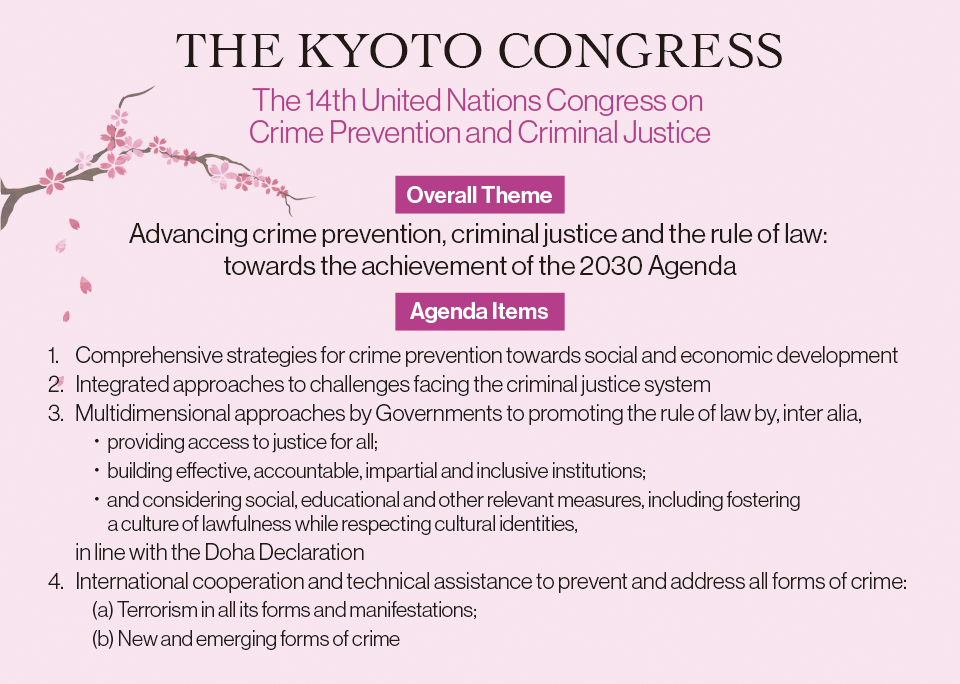
This is exemplified by the fact that not only correction officers but also social workers provide advice to inmates with a view to facilitating social reintegration upon release. Meanwhile, NPOs assist with learning support at correctional facilities for juveniles. The overall approach is intended to help former inmates and juveniles return to society smoothly, while preventing them from becoming criminals again. TAKENAKA Ayano, a Ministry of Justice (MOJ) official with experience as a correction officer, says, “For many inmates, I think that external factors, such as their family environment, had helped propel them toward crime. Citizens’ support is especially important to give such inmates an avenue to lead their lives without re-offending.”
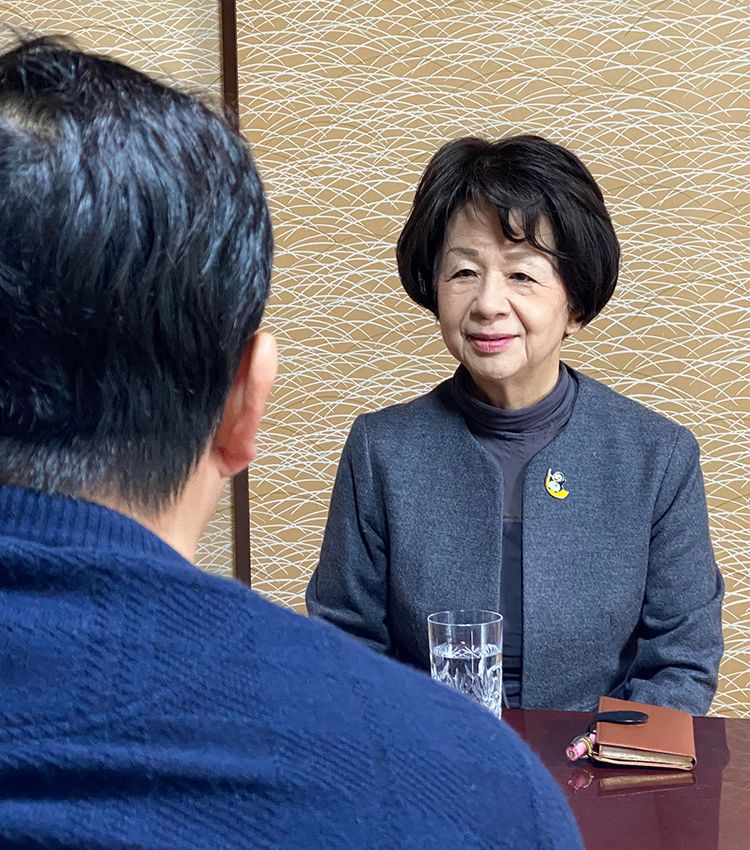
Hogoshi (volunteer probation officers) meet with probationers and parolees to help their reintegration into society and also provide emotional support.
Across the country, approximately 46,000 hogoshi (volunteer probation officers) are working to help criminals and delinquents reintegrate into local communities, supervising and supporting probationers and parolees with government probation officers. According to KITAZUME Katsuhiro, formerly with the MOJ Rehabilitation Bureau, some countries have partially modeled their own volunteer probation officer systems on Japan’s hogoshi system, adding, “Japan is known as a safe country, and one foundation for that is the system of support provided by public-private partnerships, such as probation officers and hogoshi. At the Kyoto Congress, we want to share Japan’s initiatives with the world and make the world more peaceful and just.”
Japan’s efforts illustrate how public-private cooperation is essential for crime prevention. At the Kyoto Congress in March, justice ministers from a multitude of countries will be joined by an array of stakeholders—including experts, NGOs, and companies—who will participate in deliberations, exhibitions, and other events. It will be an opportunity to remind the world about the importance of multi-stakeholder partnerships in crime prevention.
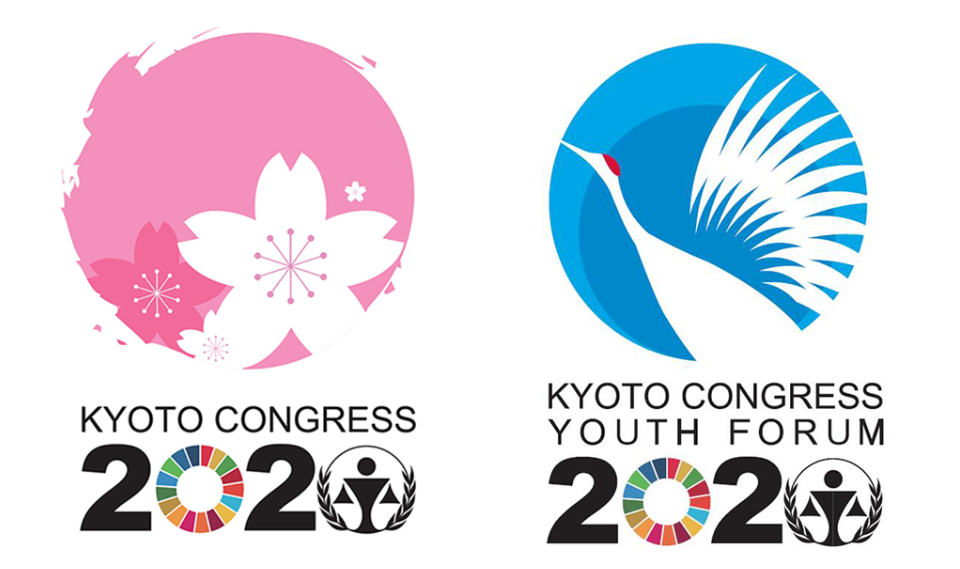
The Youth Forum—where young people from around the world will discuss actions they are taking to make society safer and achieve the SDGs—will be held on February 27 and 28, in advance of the Kyoto Congress, at which the youths will present their recommendations.
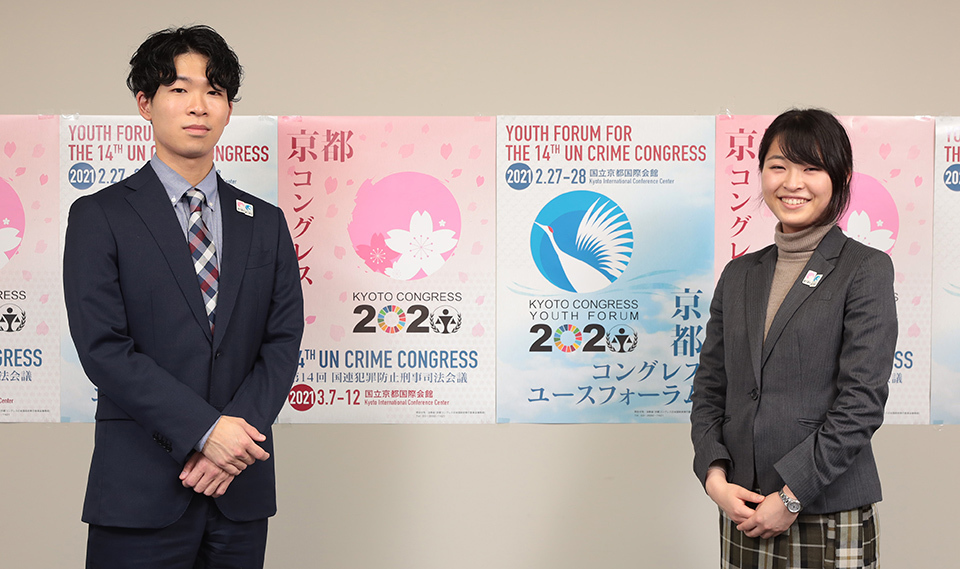
KITAZUME Katsuhiro (left) and TAKENAKA Ayano (right) of Japan’s MOJ. They both strive for the realization of a peaceful and just society, taking advantage of their work experience at the Rehabilitation Bureau and in prisons, respectively.




























